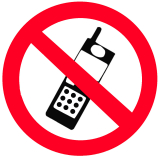 A student recently told me that she had trouble getting to sleep at night. “My mind is so active. I want to sleep but I can’t” she said with a pained expression. “Is there anything I can do?” she asked.
A student recently told me that she had trouble getting to sleep at night. “My mind is so active. I want to sleep but I can’t” she said with a pained expression. “Is there anything I can do?” she asked.
Besides doing the obvious such as avoiding caffeine right before bedtime, there are a number of things you can do to help you catch a healthy dose of zzz’s.
1. Journal out your thoughts
 If you find yourself worrying about certain things late at night, consider writing down in a journal whatever comes to mind (“I need to go to the gym tomorrow”, “I can’t forget to call Matt in the morning”, “My human biology assignment is due in 2 days, eeek!”, etc).
If you find yourself worrying about certain things late at night, consider writing down in a journal whatever comes to mind (“I need to go to the gym tomorrow”, “I can’t forget to call Matt in the morning”, “My human biology assignment is due in 2 days, eeek!”, etc).
Some people refer to this as ‘stream of consciousness writing’ or ‘morning pages’.
With this journaling technique, the key thing is to make sure the words flow continuously onto the page. If you can’t think of what to write then simply put down “I don’t know what else to write” or even “Blah blah blah blah”. Do this until your mind is emptied of all its worries and/or your eyes start to feel incredibly heavy.
2. Exercise (but do it well before bedtime)
 Engaging in regular exercise can help to decrease your stress levels and relax your body, thereby making it easier for you to fall asleep.
Engaging in regular exercise can help to decrease your stress levels and relax your body, thereby making it easier for you to fall asleep.
But it’s important to exercise at least 3 hours before you hit the sack (unless you want to be doing an all nighter!)
The reason for this is that exercise stimulates your body and makes you more alert.
On the other hand, if relaxing activities such as yoga, tai chi or simple stretches takes your fancy, these shouldn’t be a problem to do before going to bed.
3. Switch off the lights and cover any light from appliances
 If you’re not a deep sleeper, then lights from a television, digital alarm clock or computer screen may mess with your body clock.
If you’re not a deep sleeper, then lights from a television, digital alarm clock or computer screen may mess with your body clock.
When it’s time to sleep, make sure that your bedroom is dark.
I usually clip my curtains together to block out the light from the moon (as lovely as it is!) and cover my alarm clock with a jumper.
Alternatively, you could invest in an eye mask to block out any light.
4. Put away your mobile
 Mobile phone radiation interrupts vital sleeping patterns, according to Professor Arnetz (Director of Occupational and Environmental Medicine at the School of Medicine, Wayne State University). Research found that participants exposed to mobile phone radiation experienced headaches, change of moods, confusion and trouble sleeping.
Mobile phone radiation interrupts vital sleeping patterns, according to Professor Arnetz (Director of Occupational and Environmental Medicine at the School of Medicine, Wayne State University). Research found that participants exposed to mobile phone radiation experienced headaches, change of moods, confusion and trouble sleeping.
Professor Arnetz states –
“If you have trouble sleeping, you should think about not talking on a mobile phone right before you go to bed. The study strongly suggests that mobile phone use is associated with specific changes in the areas of the brain responsible for activating and coordinating the stress system”.
5. Practice one hour of sleep transition time
 You need to prepare your mind and body to go from being fully awake to being able to sleep for 8 – 8.5 hours (the recommended amount of sleep for adolescents).
You need to prepare your mind and body to go from being fully awake to being able to sleep for 8 – 8.5 hours (the recommended amount of sleep for adolescents).
So one hour before you plan to go to bed, engage in activities that will slow down your brain and relax your body. Consider reading a book, writing in a journal, taking a bath and/or having a warm drink of milk.

2 thoughts on “5 simple steps to help you sleep like a baby”
Comments are closed.